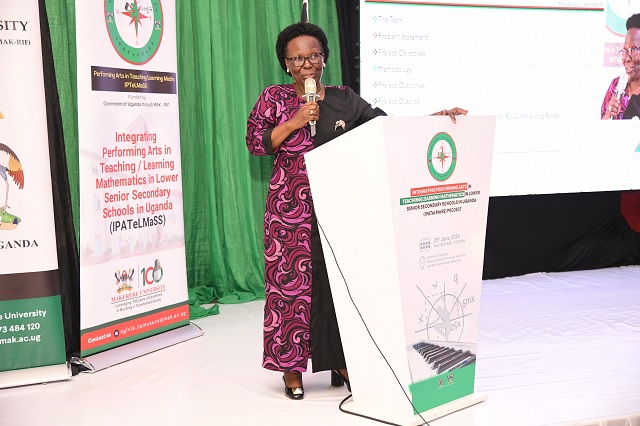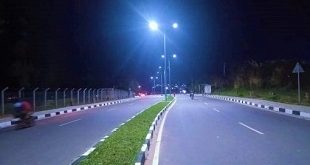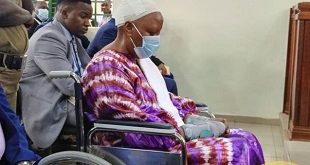
Kampala, Uganda | THE INDEPENDENT | A study by Makerere University dons propose that secondary schools should include performing arts in the teaching and learning of mathematics.
They say the incorporation of music and drama at lower secondary schools could make teaching and learning interesting and understandable.
The study was conducted at schools including Mubende Army Secondary School, and Kitenga Secondary.
Researchers led by Professor Antonia Nannyonga Tamusuza; from the School of Liberal and Performing Arts School believe that this will help those who have had challenges with mathematics subject.
Professor Tamusuza said that one of the biggest objectives they had was to develop an integrated performing arts teaching-learning model as an intervention to improve the performance of Mathematics.
Over the past years, the poor performance of science subjects particularly mathematics has caused serious fear amongst students, teachers, and parents.
A study in 2022 on the poor performance of mathematics by students indicated that teaching methods, teaching, and learning materials were the major causes of poor performance in mathematics among senior secondary schools.
Prof. Tamusuza told Uganda Radio Network that incorporating music into mathematics lessons could offer students an alternative approach, potentially fostering a more positive attitude toward the subject than the current teaching model.
She explained that teachers and students may develop several musical lyrics that are made up of mathematics topics, as well as some of the hard formulas that are used in mathematics, for them to remember them.
She explained that they discovered that students’ concentration spans are typically short, lasting around 20 minutes and that if the teachers introduced rhythmic activities that incorporate mathematical content, it could help students better grasp challenging concepts.
She said the proposed model does not aim to replace existing teaching methods but to enhance them by integrating musical elements into the teaching structure.
This approach is designed to make mathematics more engaging and accessible to all students, including both quick and slow learners.
Ivan Asianzu, one of the students from Mubende Army secondary school who participated in the research said that using music in mathematics lessons made the subject more enjoyable and attracted students who previously disliked math.
Asianzu recalled composing songs that included various mathematical procedures and formulas, which significantly improved his understanding and retention of the material.
Lt. Arthur Niwemurinzi, the Deputy Head Teacher of Mubende Army secondary school said that the model helps to have a one hundred percent participation where both quick and slow learners can be catered for.
Hajji Ismael Mulindwa, the director of basic and secondary school education at the Ministry of Education and Sports who was the chief guest at the research dissemination said that such an approach should have been implemented years ago.
Mulindwa argued that using music in education naturally appeals to children and enhances their ability to retain information.
*****
URN
 The Independent Uganda: You get the Truth we Pay the Price
The Independent Uganda: You get the Truth we Pay the Price




it was really an amazing experience